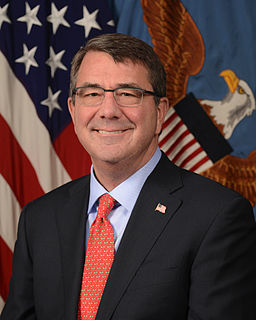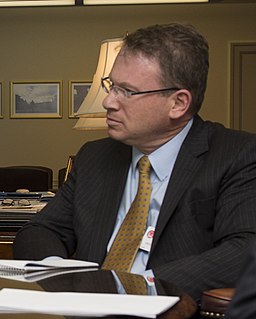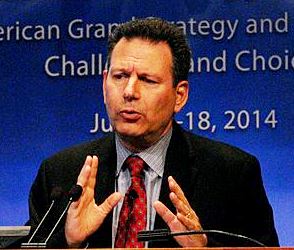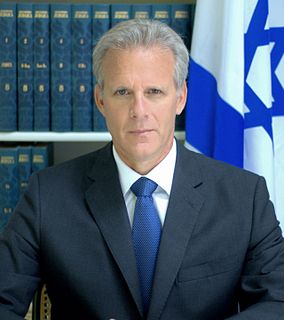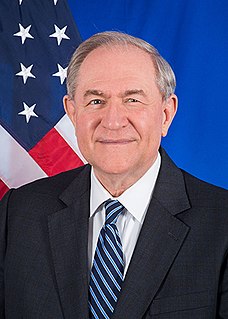A Quote by Stephen Kinzer
The United States has dealt with the Middle East and surrounding regions for many decades in the context of the Cold War.
Quote Topics
Related Quotes
Much as Cold War nuclear strategists could argue about winning a nuclear war by having more survivors, advocates of a Global Warming War might see the United States, Western Europe, or Russia as better able to ride out climate disruption and manipulation than, say, China or the countries of the Middle East.
We have for decades now, and I've dealt with the Russians for 35 years, we have from time to time been able to, even though we have different interests, to align them. That alignment has become more and more difficult under Putin. You see that in Ukraine, you see it in the Middle East. To an extent where he actually defines Russian success as thwarting the United States.
While the foreign policy elite in Washington focuses on the 8,000 deaths in a conflict in Syria – half a world away from the United States – more than 47,000 people have died in drug-related violence since 2006 in Mexico. A deeply troubled state as well as a demographic and economic giant on the United States’ southern border, Mexico will affect America’s destiny in coming decades more than any state or combination of states in the Middle East.
The United States ... has been proud of its association with the State of Israel. We shall continue to stand with Israel. We are committed to Israel's survival and security. The United States for a quarter of a century has had an excellent relationship with the State of Israel. We have cooperated in many, many fields - in your security, in the well-being of the Middle East, and in leading what we all hope is a lasting peace throughout the world.
I believe that the Iraqis have an opportunity now, without Saddam Hussein there, to build the first multiconfessional Arab democracy in the Middle East. And that will make for a different kind of Middle East. And these things take time. History has a long arc, not a short one. And there are going to be ups and downs, and it is going to take patience by the United States and by Iraq's neighbors to help the Iraqis to do that. But if they succeed, it'll transform the Middle East, and that's worth doing.
I think the public is very reluctant to get involved in more foreign wars, especially in the Middle East. And they understand, implicitly, that we go to war in the Middle East because of oil. And if we don't want to go to war in the Middle East, then we have to do something about the oil problem. And I think that view is gaining ground in the U.S.
I don't believe in the theory that the United States is reducing its presence in the Middle East. Quite the contrary, in the Gulf, we see an increase in American military presence, as well as an increase in American investments. The argument is more accurate when one says America is focusing more attention to the Far East. But I don't believe it comes at the expense of the Middle East.
I was an Army intelligence agent and a veteran during the Cold War, assigned to West Germany. I was the chairman of the National Commission on Homeland Security and Terrorism for the United States for five years. I was a person who has dealt extensively with these homeland security issues. I was a governor during the 9/11 attack.


